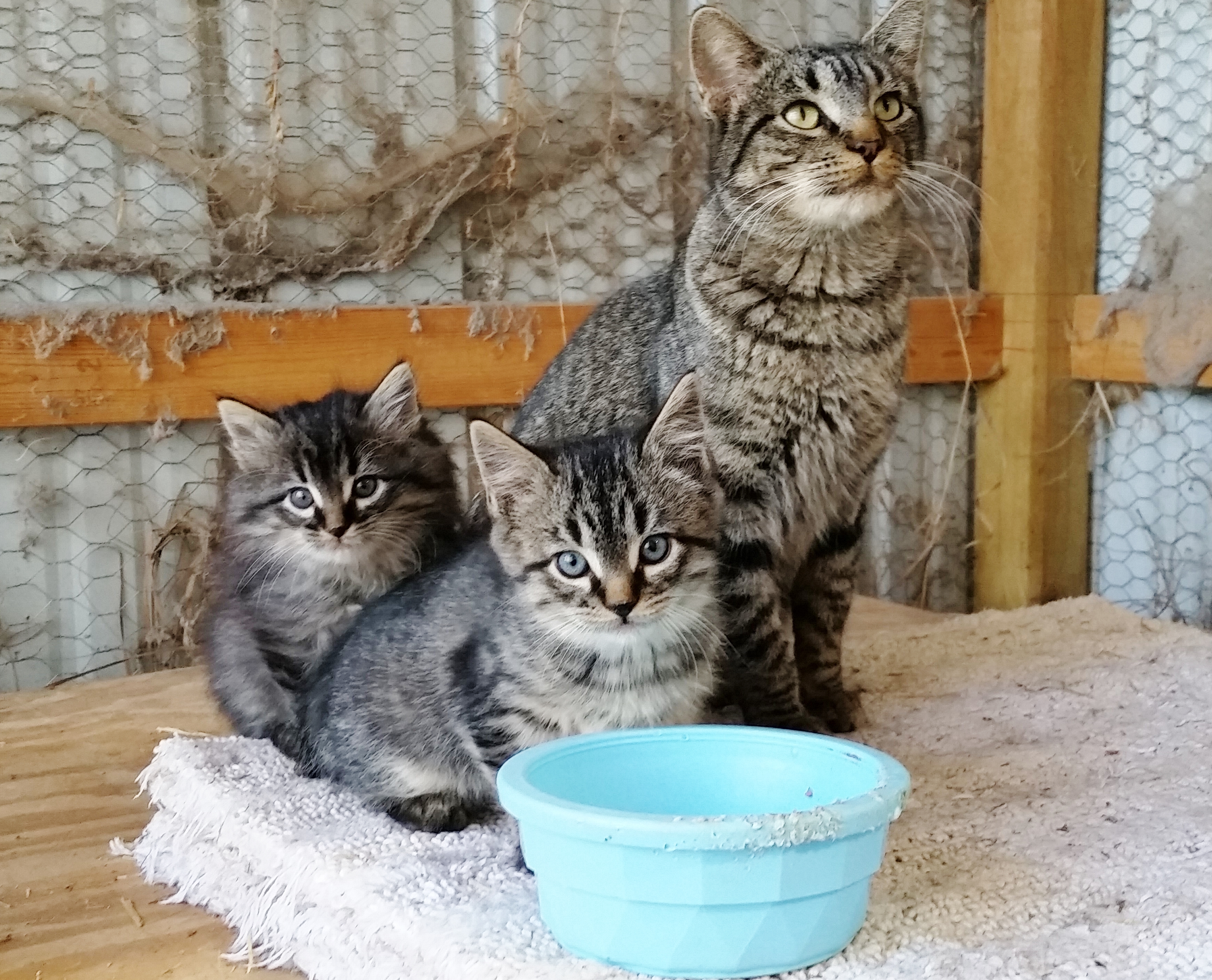
Spay/Neuter of Feral Cats - the Overpopulation Solution
TNR (Trap, Neuter, and Return) is our community outreach program supporting the animal care efforts of individuals with outdoor cat populations. It is the best option for helping feral cats when a property owner is willing to support a feral cat colony on his/her premises. If residents are willing to provide food, water, and shelter sufficient to maintain an existing feral colony, TFFF will initiate TNR. With the caregivers' help, the cats are trapped humanely and transported to the veterinarian for an examination, spay/neuter and rabies vaccination. The cats are returned to their outdoor homes, retaining their freedom in their familiar territory without the risks of reproduction. By keeping the population under control, caregivers are able to manage their colonies without incurring the escalating costs of an increasing population.
TNR is an important element of TFFF's mission to contain feral populations in a humane manner. It has been shown to be more effective in reducing cat populations than euthanasia. Killing cats merely makes more food available to the survivors who then exploit the surplus by reproducing at a greater rate. Additionally, by helping people manage cats on their premises, we are able to reserve our limited shelter space for cats that are unwanted or suffering abuse.
TNR complements, but does not replace the need for our rescue, shelter, and adoption program. First, TNR is only applicable to true feral cats - we don't feel that a cat that's obviously been a companion animal should be converted to a feral cat via TNR. Second, TNR requires the active co-operation of the resident or property-owner. If they are unwilling to support the colony, or will not consent to our program guidelines, TFFF will not initiate a TNR program. If cats' lives are in immediate jeopardy, we will trap, remove the cats, and take them to our shelter for veterinary care and adoption.
TNR is available free of charge to the public, the only such program in our area. To promote colony well-being, TFFF can also provide food support and veterinary expense reimbursement to low-income colony caregivers.
In 2009, Taos Feral Feline Friends published the results of its review of the pros and cons of testing stray or feral cats for the feline leukemia and feline immunodeficiency viruses (FELV and FIV). To review or download this research, please click here: FELV / FIV Testing Poilcy and Rationale